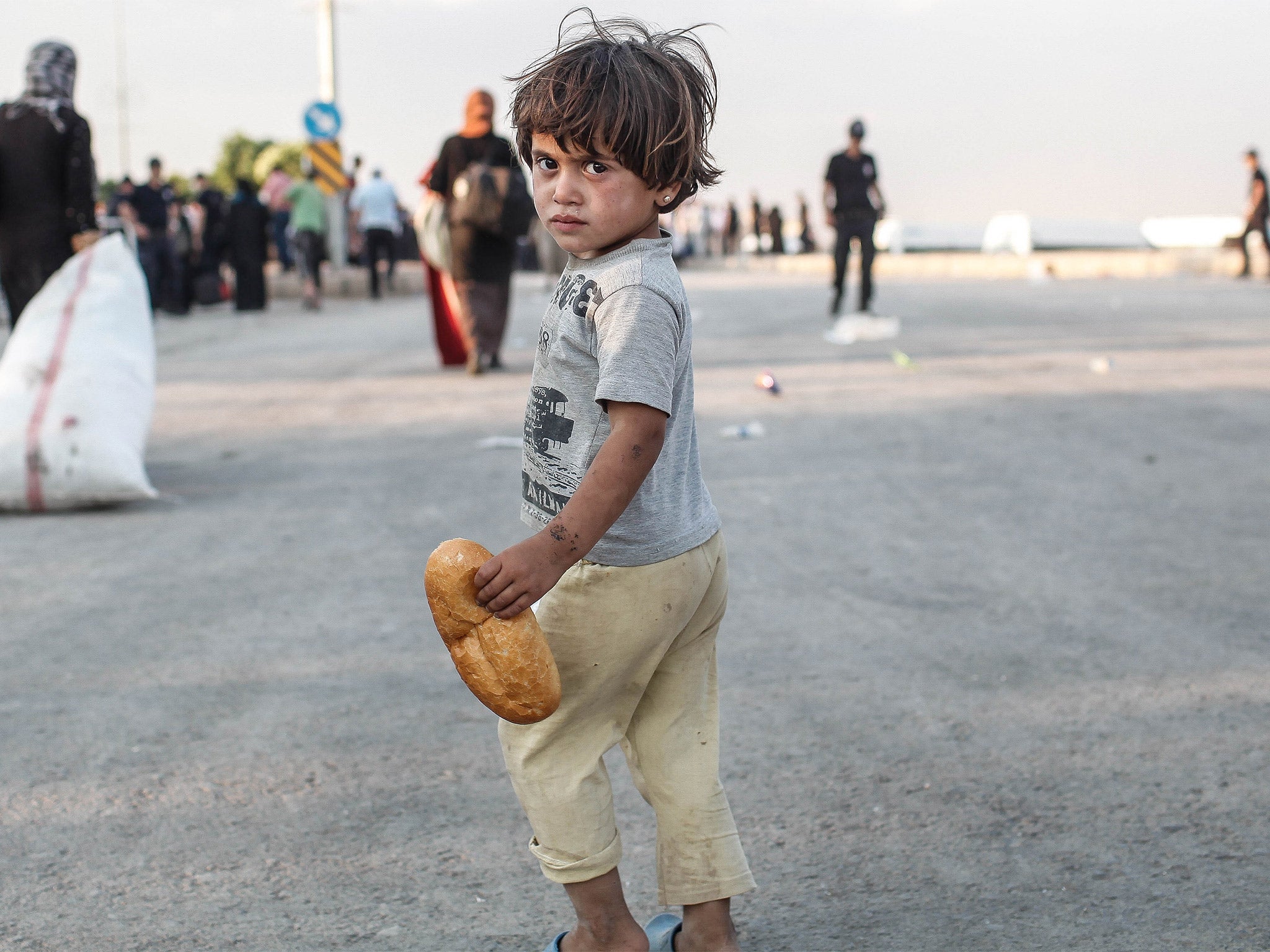David Cameron's rhetoric on the EU migrant crisis is cruel and misleading
Children are fleeing the escalating violence, forced recruitment and army conscription, and marriage

Your support helps us to tell the story
From reproductive rights to climate change to Big Tech, The Independent is on the ground when the story is developing. Whether it's investigating the financials of Elon Musk's pro-Trump PAC or producing our latest documentary, 'The A Word', which shines a light on the American women fighting for reproductive rights, we know how important it is to parse out the facts from the messaging.
At such a critical moment in US history, we need reporters on the ground. Your donation allows us to keep sending journalists to speak to both sides of the story.
The Independent is trusted by Americans across the entire political spectrum. And unlike many other quality news outlets, we choose not to lock Americans out of our reporting and analysis with paywalls. We believe quality journalism should be available to everyone, paid for by those who can afford it.
Your support makes all the difference.At a recent Prime Minister’s Questions, David Cameron said: “The vast majority of people setting off into the Mediterranean are not asylum seekers, but seeking a better life” – as if the boats crossing to Europe are full of Syrian plumbers seeking higher wages than they earn at home.
He’s wrong. Fresh Human Rights Watch research shows that most of those making the crossing are taking terrible risks because they have to, not because they want to. This includes thousands of vulnerable and traumatised children who travel alone, without parents or other family.
According to the UN Refugee Agency, 60 per cent of people who took the perilous sea journey in 2015 come from just four countries: Syria, Afghanistan, Eritrea and Somalia. In these countries, there are massive and multiple push factors causing them to flee, including extreme violence, egregious human rights abuses and desperate humanitarian conditions.
Take Syria. Not so long ago, Cameron favoured military action there because of the atrocities being inflicted by President Assad’s regime on Syrian civilians. While Syria is less often in the media, the horrors continue, with no end in sight to the suffering of its people. In Afghanistan, the Taliban has mounted frequent attacks in several traditionally secure provinces as well as Kabul, displacing tens of thousands of people over the past year.
A new UN report on human rights conditions in Eritrea should dispel any illusions as to why so many people are leaving that country. The UN Commission of Inquiry found “systematic, widespread and gross human rights violations” such as extrajudicial executions, physical and sexual torture, and forced labour. It concluded these violations “may constitute crimes against humanity”.
The long-running armed conflict in Somalia continues to take a heavy toll. The government there has done too little to tackle widespread sexual violence, while the armed Islamist group al-Shabaab controls much of south-central Somalia, administering public executions and beatings.
Many of the migrants and asylum seekers – from these four countries and others – embark on the journey across the Mediterranean from Libya. That country has been in turmoil since 2011 when an armed uprising and international intervention (which included the UK) led to the overthrow of Colonel Gaddafi. The outbreak of new hostilities last year unleashed a further wave of violence, prompting many who had travelled to Libya for work to attempt the sea crossing to Europe.
This is the backdrop to the unprecedented exodus from the Middle East and North Africa. In April, the drowning of more than 1,000 migrants in a single week spurred positive, if belated, UK and European action to step up search-and-rescue operations at sea. This is saving many lives and it is absolutely essential to sustain the effort. But beyond this, the UK Government still insists – falsely and foolishly – on presenting the crisis as primarily one of border control and law enforcement.
UK and wider European influence and resources should obviously be used to address the major drivers of migration, not least gross human rights abuses. But there are also legal obligations and moral responsibilities towards those desperate people who have found it impossible to remain in their home countries.
Those rescued at sea should be taken to a place of safety, treated with compassion and dignity, and have their asylum and protection claims properly assessed. The European Commission’s modest refugee resettlement proposal should be supported not opposed, with the UK and other European countries agreeing to take larger numbers of vulnerable Syrians, as well as Eritreans, Afghans and Somalis. It is preposterous for the UK to claim it cannot accommodate more refugees when tiny Lebanon is hosting over a million Syrians, swelling its population by 25 per cent.
The plight of unaccompanied children should be given particular priority. Testimony gathered by Human Rights Watch shows children are fleeing forced recruitment by the Taliban or Syrian insurgent groups, conscription by the Syrian army, child marriage, or escalating violence. In Afghanistan, 2,500 children were killed or maimed in 2014 alone. The ones who fled described their long journeys to safety: crossing dangerous terrain, negotiating with smugglers, being shot at by border guards, and packing themselves into frail vessels. To suggest these children are merely seeking “a better life” is not only misleading but cruel.
Before this week’s EU summit, Cameron should read the recent maiden speech of the Conservative Baroness Arminka Helic, a refugee from war-torn Bosnia. While Cameron talks of “turning back the boats”, Lady Helic spoke movingly of how “Britain allowed me in, gave me refuge and opportunity”. It is this more compassionate and internationalist strand in our national character – that she invokes and from which she benefited – that should shape Britain’s response to the unfolding migration crisis.
David Mepham is UK director of Human Rights Watch
Join our commenting forum
Join thought-provoking conversations, follow other Independent readers and see their replies
Comments